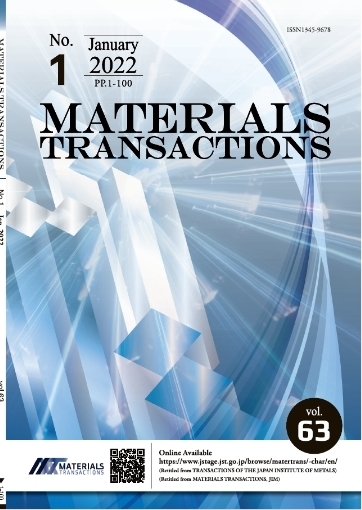The Twin and Twin System in FCT L10 θ-MnNi Phase in an Equiatomic Mn-Ni Alloy
Yoon-Uk Heo, Hu-Chul Lee
pp. 2546-2550
Abstract
This study examined the twinning mechanism and operating twin system of a face centered tetragonal (FCT) L10 θ-MnNi phase in an equiatomic Mn-Ni alloy using detailed TEM analysis (electron diffraction, high resolution imaging, and HAADF (Z-contrast) imaging techniques) of the structure of the twins formed during the β (B2, bcc) to θ (L10, fct) phase transformation. In addition to the well-documented {111}1⁄6⟨112] deformation twinning system in L10 crystals, {111}1⁄6⟨211]* type pseudo-twin systems were also observed. The Z-contrast image of the twins showed that no atomic shuffling occurred during twinning in the θ-MnNi phase and atomic order was maintained in the {111}1⁄6⟨112] type true-twins.
*in ⟨ijk], i and j are interchangeable in the tetragonal system but k is not.










